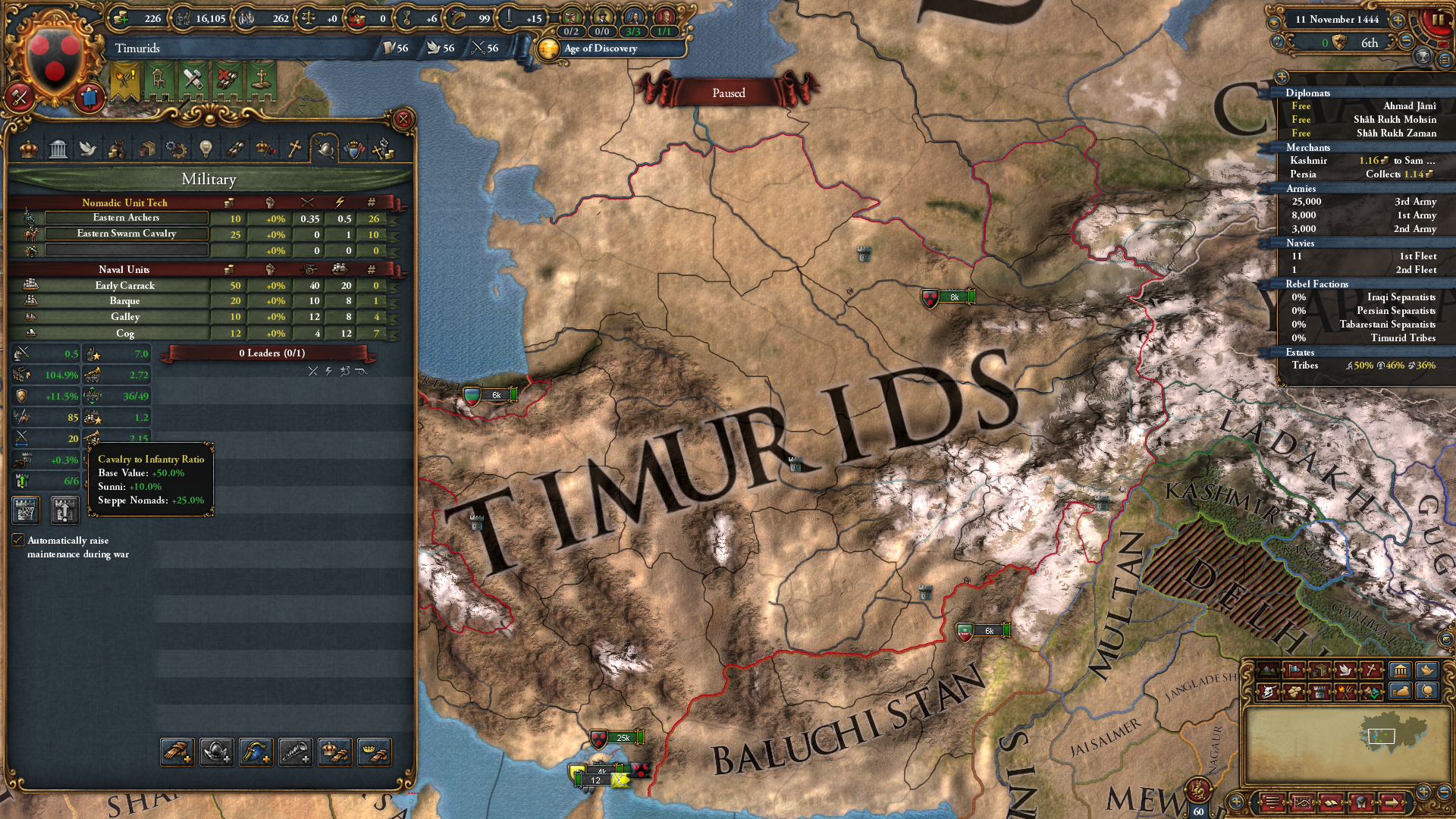Hello and welcome to another development diary for Europa Universalis IV. We’re about 9 days away from release of Mandate of Heaven on the 6th of April 2017. Next week we’ll go into the patchnotes in detail, but for now, let’s look at some of the features we’ve not got into detail yet.
First of all, we have added a new feature in the expansion when performing a siege.
Artillery Barrage is something you can order an army to do, when you have fullsized artillery regiments than the fortress have fort-levels. A barrage costs 50 MIL power, and creates a breach in the forts walls.

A new cool thing that is free in the patch is the ability to declare bankruptcy at will. Of course, this can only be done when you have a loan, and is not already in a bankruptcy. The effects of bankruptcy have changed as well, in that you lose 3 stability, get all your power set to -100, lose all advisors, mercenaries & current constructions. All loans are gone, but all your provinces suffer 10 devastation and lost the “recent uprising” modifier. You also lose all buildings you have built in the last 5 years. You gain a penalty for 5 years as well, which reduces morale by 50%, increases tech, idea & advisor costs by 50% and increases autonomy and decreases absolutism in your nation.
Another improvement to the 1.20 patch is the changes to the macrobuilder when it comes to buildings. Now, when you have selected a building, you will see a list of all provinces where it can be built, which can be sorted on cost, profit and other aspects, making it easier to optimise your economy.

For those of you that like the ledger, but find it hard to navigate with the large amount of nations, we have now added filter buttons so you can see just those nations that interest you for the moment. We’ve also colored the row of your own nation, so it is always easy to see. This is of course part of the free patch.

As you may have noticed, the military overview got a bit cramped with the previous layout. This have been changed now, allowing us to add other important values here, like the new cavalry to infantry ratio.

Stay tuned, its just a few days more…..
First of all, we have added a new feature in the expansion when performing a siege.
Artillery Barrage is something you can order an army to do, when you have fullsized artillery regiments than the fortress have fort-levels. A barrage costs 50 MIL power, and creates a breach in the forts walls.

A new cool thing that is free in the patch is the ability to declare bankruptcy at will. Of course, this can only be done when you have a loan, and is not already in a bankruptcy. The effects of bankruptcy have changed as well, in that you lose 3 stability, get all your power set to -100, lose all advisors, mercenaries & current constructions. All loans are gone, but all your provinces suffer 10 devastation and lost the “recent uprising” modifier. You also lose all buildings you have built in the last 5 years. You gain a penalty for 5 years as well, which reduces morale by 50%, increases tech, idea & advisor costs by 50% and increases autonomy and decreases absolutism in your nation.
Another improvement to the 1.20 patch is the changes to the macrobuilder when it comes to buildings. Now, when you have selected a building, you will see a list of all provinces where it can be built, which can be sorted on cost, profit and other aspects, making it easier to optimise your economy.

For those of you that like the ledger, but find it hard to navigate with the large amount of nations, we have now added filter buttons so you can see just those nations that interest you for the moment. We’ve also colored the row of your own nation, so it is always easy to see. This is of course part of the free patch.

As you may have noticed, the military overview got a bit cramped with the previous layout. This have been changed now, allowing us to add other important values here, like the new cavalry to infantry ratio.

Stay tuned, its just a few days more…..

